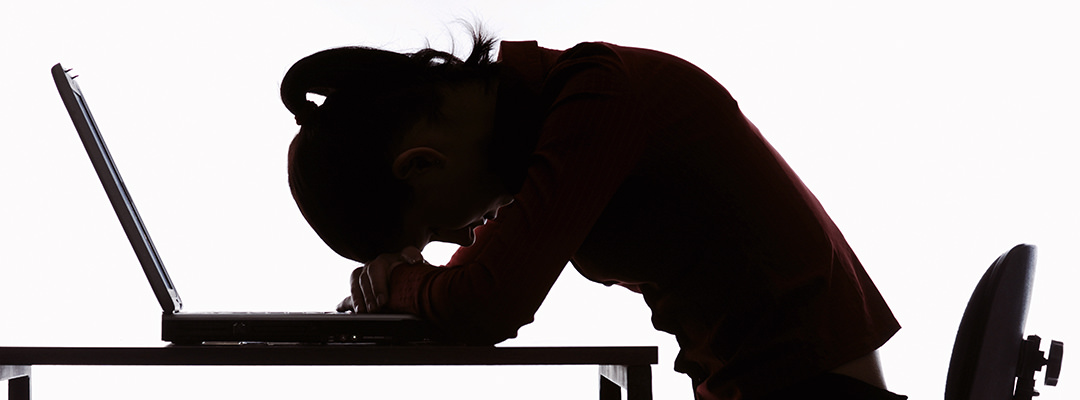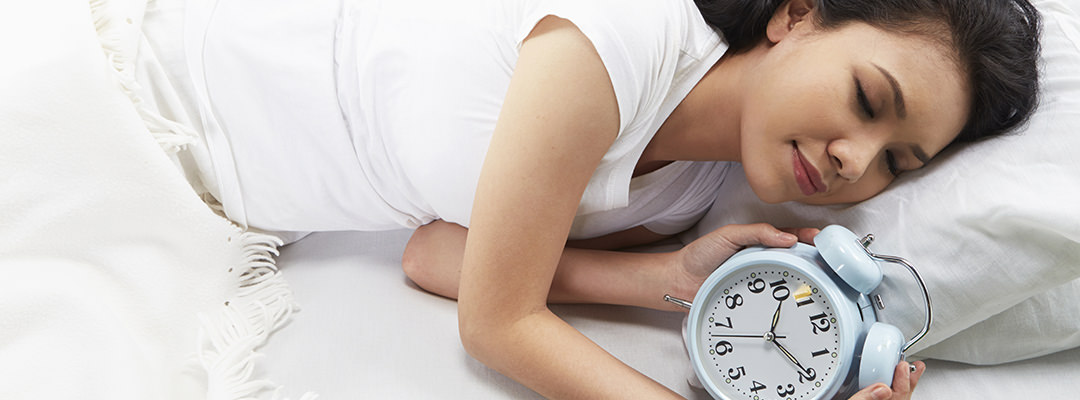The quality of our sleep directly impacts our health. Sleep affects our health, productivity, creativity, vitality, and immunity. I used to be able to function on little sleep. I didn’t realize it was negatively impacting so many parts of my life. Once I figured out lack of sleep was the culprit of my productivity levels, I made big changes to my sleeping habits. Though every person is different, the basic question remains the same. How much sleep do we really need?
How Much Sleep Is Recommended for Each Age Group?
The table below breaks down the hours of recommended sleep for each age range. Babies need a lot more sleep than adults. A newborn sleeps almost the entire day, while a teenager only needs from eight to 10 hours of sleep a night. By the time you reach adulthood, you need from seven to nine hours of sleep to feel productive and healthy. Preschool and school-age children vary from nine to 13 hours. Adults ages 65 and over only need about seven to eight hours of sleep.
| Age Range | Recommended Hours of Sleep |
|---|---|
| 0 to 3 months old | 14 to 17 hours |
| 4 to 11 months old | 12 to 15 hours |
| 1 to 2 years old | 11 to 14 hours |
| 3 to 5 years old | 10 to 13 hours |
| 6 to 13 years old | 9 to 11 hours |
| 14 to 17 years old | 8 to 10 hours |
| 18 to 25 years old | 7 to 9 hours |
| 26 to 64 years old | 7 to 9 hours |
| 65+ old | 7 to 8 hours |
Sleep Deprivation: Are You Getting Enough Sleep?
You may be attacking the day with full vigor but run out of energy quickly. You may not even realize you’re sleep-deprived. Many people walk around like a zombie not realizing they’re actually sleep-deprived. Signs of sleep deprivation are usually a lot more subtle than falling asleep during a work meeting. It’s important to know that you can’t really go long without sleep and falling asleep during the day might mean your body is deprived of sleep.
The Signs Of Sleep Deprivation
Some of these signs happen on a daily basis for many people. If you’re not able to stay active throughout the day, you might need more sleep. These are the signs of sleep deprivation:
- Have a tough time getting out of bed
- Feel tired after lunch
- Easily irritated
- Reduced sex drive
- Find yourself drowsy while driving
- Sleeping in on days off
- Get sleepy during “boring” programs
- Need an alarm clock
- Fall asleep within a few minutes of hitting your pillow
- Feel the need to nap
The Dangers Of Sleep Deprivation
Sleep deprivation can be dangerous. Many people report feeling as if they’re drunk when they don’t get enough sleep. If you don’t get enough sleep, your body responds in different ways. An occasional night without quality sleep makes most people feel irritable and sluggish. One or two nights without a good night’s rest won’t necessarily harm your health. After a few sleepless nights, you’ll feel the mental effects.

Sleepiness Leads To Accidents
When your body is sleepy, it’s tough for your brain to concentrate. Drowsy driving leads to slow reactions. The National Highway Traffic Safety Administration states that drowsy driving causes 100,000 auto crashes each year. Lower quality of sleep also leads to accidents on the job.
Sleep Loss Impairs Cognitive Processes
If you don’t get a good night of rest, cognitive processes will be impacted. Your attention span and concentration won’t be as sharp. It might be hard to pay attention as well as find adequate reasoning.
Health Issues
Lack of sleep can lead to many health issues. Your immune system produces antibodies and cytokines while you sleep. These help fight bacteria and viruses. If you don’t sleep, your immune system can’t produce these things to fight infection. Lack of sleep might lead to a heart attack or stroke. Your heart and blood vessels depend on adequate amounts of sleep. Sleep helps your body heal and repair the heart as well as the blood vessels. These directly affect your blood pressure, blood sugar, and inflammation of the blood vessels. Growth hormones are affected when your body does not get adequate amounts of sleep. Humans need three hours of straight sleep to produce testosterone. The pituitary gland is busy producing growth hormones throughout the day. If you don’t get enough sleep, it’s tough for this hormone to release properly. Sleep deprivation can actually lead to weight gain. Your leptin and ghrelin hormones are impacted during sleep. These control your hunger and levels of fullness. If you don’t get enough sleep, your brain reduces more of these hormones. This often leads to late-night snacking. This also affects your weight because you often don’t wish to exercise when you’re sleepy. During the day, you can’t burn enough calories. Your body lowers its glucose tolerance when it’s sleepy. This means you are more susceptible to diabetes.
Lack Of Sleep Leads To Depression
Insomnia and depression seem to go hand-in-hand. Insomnia is one of the first signs of depression. Loss of sleep tends to bring on symptoms of depression. It can then be hard to sleep. During REM sleep, the brain processes emotional information. It works through thoughts and memories. If the body does not get enough of this stage of sleep, it can be harmful to consolidate that positive content. This interruption can influence your mood and emotional reactions.
What Are The Stages Of Sleep?
There are five main stages of sleep and two types of sleep. The two types of sleep are rapid eye movement (REM) and non-REM sleep. REM sleep is only one stage, while non-REM is four stages. Quality sleep is not measured by the number of hours you sleep. It’s measured by the quality of those hours. Each stage of sleep offers different benefits to the body.

Stage 1
Stage 1 of non-REM sleep is the time when you hit your pillow. Your breathing and heart will slow down a little bit. Your muscles start to relax as your brain produces alpha and theta brain waves. You’ll feel relaxed during this time.
Stage 2
During Stage 2, your body is in a light sleep. This stage lasts about 25 minutes. Your heart and breathing will slow down even more. You won’t have any eye movements. Your brain waves will go up and down as your body enters the next level.
Stage 3
Stage 3 brings slow brain waves called delta waves to the body. These slow waves are mixed with smaller, faster brain waves.
Stage 4
By stage 4, your body is in its deepest sleep stage. Brain waves are much slower during this stage. Muscles and eyes have no movement. Your heart and breathing are at their lowest rate. During this stage, it is extremely difficult to awaken most people. If you are woken up during this stage, you will feel disoriented for a little bit.
Stage 5: REM Sleep
Stage 5 happens about 90 minutes after you actually go to sleep. The first few sleep cycles each night have shorter REM stages and longer periods of deep sleep stages. During Stage 5, you have rapid, darting eyes. This is when you do your deepest dreaming. Your heart rate and breathing will increase during this time. You may twitch as your muscles become temporarily paralyzed. Your brain activity is increased. A complete sleep cycle usually takes about 90 to 110 minutes.
15 Tips For A Better Sleep
1. Bedroom Temperature Perfection
It’s crucial to your sleep quality to find the best combination between your body temperature and bedroom temperature. It’s tough for most people to get a good night of sleep when the room is too hot. Set the thermostat to about 70°F (20°C) to sleep your best. Test out different temperatures to figure out what works best for your body.
2. Increase Natural Lighting
Natural sunlight keeps your body in a healthy circadian rhythm. This will help you stay awake all day. If you’re not around natural light, you can use artificial bright lights around your home.
3. Eliminate Too Much Alcohol
A few alcoholic beverages before bed will impact your quality of sleep. Excessive alcohol before bed increases symptoms of sleep apnea and snoring. The natural melatonin your body produces while you sleep also slows down. These things all throw off your circadian rhythm leaving you without quality sleep.
4. Don’t Exercise Before Bed
Exercise is great for your sleep, as long as you don’t do it right before bed. If you get your heart pumping, it’ll be tough to calm your body down for sleep. Your adrenaline and epinephrine hormones are pumping hard after a good workout.
5. Reduce Blue Light Exposure
Blue lights emitted from smartphones and computers throw off your circadian rhythm at night. Your brain thinks it’s still daytime making it tough to get a good night of rest. It’s best to turn off all screens about an hour before bed. You can also use glasses or apps that block blue light.
6. Reduce Daytime Naps
Short power naps during the day are great for your health. An hour-long daytime night might throw off your nighttime routine. Your internal clock doesn’t mix well with long daytime naps.
7. Upgrade Your Bedding
The quality of your mattress and pillow is crucial to your sleeping. Many people have different preferences when it comes to the perfect bedding. Some love firm mattresses, while others love super-soft mattresses. Figure out what works best for you to get a comfortable night of sleep.
8. Don’t Consume Late Day Caffeine
Many people love their cup of coffee in the morning because it perks them up. If you consume it late in the day, that caffeine stimulates your entire body. It might be tough to chill out each night naturally. Caffeine can stay in your blood for up to eight hours.
9. Consistency is Key
Your body’s circadian rhythm depends on consistency. It aligns itself with the sun rising and sun setting each day. If you don’t go to sleep and wake up consistently, your body is confused. The weekends seem like the perfect time to sleep in, but the change can impact your sleep.
10. Take Melatonin
Melatonin is made naturally by your body. It’s the feeling you get when you start to feel sleepy. Melatonin supplements join with your natural melatonin to aid your overall sleep. Take two of these supplements about an hour before bed to get the best effect.
11. Don’t Go Wild Adjusting Your Schedule
There are going to be times when you need to change your sleep schedule. It’s best to do it gradually instead of jumping in the deep end. If you adjust your schedule by one hour per night, you should be on track in a few nights. This little change should help your body adjust to its new schedule.
12. Don’t Eat Late
It can be tough to fall asleep after a large meal. Your body is still trying to digest its food while you are trying to get some sleep. A large meal may get in the way of the body’s natural release of melatonin and HGH. If you’re hungry right before bed, nibble on a few small snacks to satisfy your hunger without interrupting your sleep.
13. Relax With A Hot Bath
A nice, hot bath is like warm milk before bed. It relaxes you for a great night of sleep. If you don’t enjoy a bath, take a hot shower about an hour before bed.
14. Upgrade Your Bedroom Environment
You may sleep differently if you go to sleep in a cold dungeon versus a comfortable bedroom. Your sleeping environment may need an upgrade. You need the correct noise levels, temperature level, external light exposure, and furniture arrangement to sleep well. Make sure your bedroom is a place of peace and solace each night as you tuck yourself into bed.
15. Sleep Disorder Testing
You may be doing everything right but still feel sleepy all of the time. You might have a sleep disorder. The main five sleep disorders include sleep apnea, insomnia, narcolepsy, restless leg syndrome, and REM sleep behavior disorder. Always speak with your healthcare provider if you feel you have a sleep disorder.
Next time you feel the need for a nap, give your body a rest. Your body depends on those sleep cycles to keep it happy and healthy. Figure out the amount of sleep that works best for you, and try your best to get that sleep each night.
Did you like it?4.4/5 (28)





